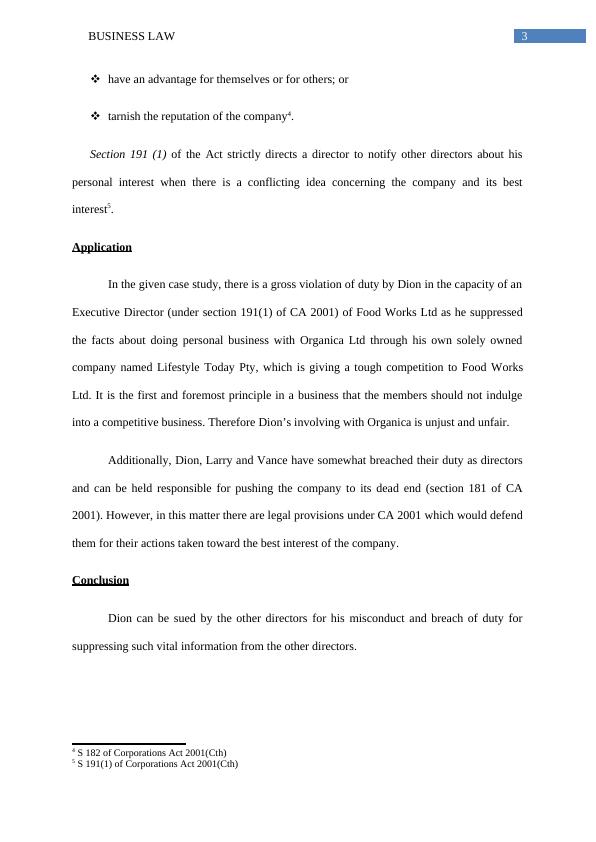Business Law Case Study Analysis
12 Pages2289 Words244 Views
Added on 2023-06-10
About This Document
This Business Law case study analysis discusses the breach of director's duty under the Corporations Act 2001 and the remedies available under the law. The case study covers the violation of duty by Dion, Larry, and Vance as directors of Food Works Ltd, and the defence available to them under the Business Judgement Rule. It also discusses the penalties for the breach of director's duty under Common Law and the Corporations Act 2001. Additionally, the case study analyzes the remedies available to Caitlin and Sarah under the Corporations Act 2001 for the breach of duty by Ben and David as directors of the company.
Business Law Case Study Analysis
Added on 2023-06-10
ShareRelated Documents
End of preview
Want to access all the pages? Upload your documents or become a member.
Corporations Law - Case Study
|7
|1827
|29
Duty of Good Faith in Company Law
|10
|2728
|82
Director Duties and Remedies for Minority Shareholders under the Corporations Act
|10
|2507
|189
Assignment on Commercial Law PDF
|9
|1988
|106
Company Law
|7
|1779
|135
Breach of Director's Duties under Corporations Act 2001
|7
|1186
|409




